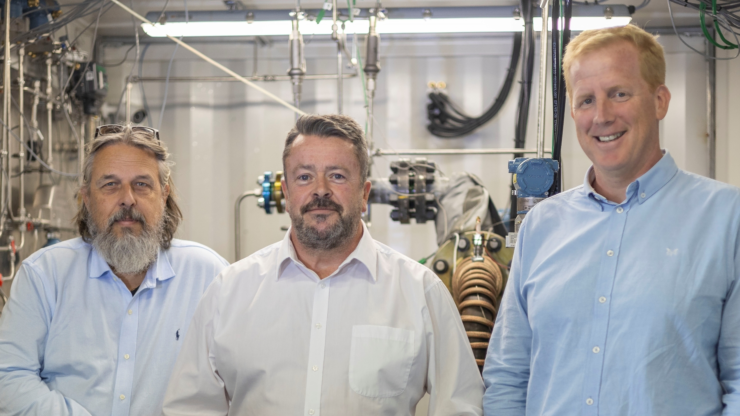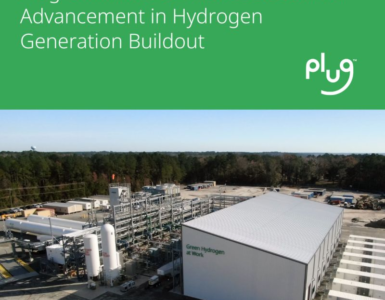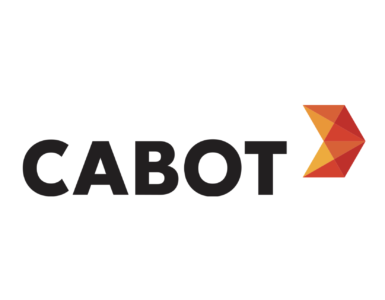Hydrogen economy to get a big government boost – Korea.
By 2030, 30,000 hydrogen commercial vehicles will be on the roads of Korea, up from the current 211, according to a government blueprint released.
The plan calls for 80 liquefied hydrogen charging stations and clean hydrogen being 7.1 percent of the country’s hydrogen energy by 2036.
Under the plan, Korea will have 600 hydrogen companies by 2030 and will be top ranked in categories related to hydrogen, including water electrolysis and fuel cells.
Han Duck-soo, Prime Minister said on Wednesday, said:
The new government’s goal is to set up a clean hydrogen supply network and thus become the world’s No.1 in hydrogen.
The government said it is taking more aggressive steps than the Moon Jae-in administration in terms of the hydrogen economy in its support of clean hydrogen production and distribution.
It noted that the previous administration’s policies were centered on grey hydrogen, which includes hydrogen extracted from liquefied natural gas or from petrochemical and steel production.
“There has been a gap in the industry’s competitiveness against advanced countries, especially in production, storage and transportation, as the hydrogen policies in the past have been limited to certain areas, such as hydrogen-fueled passenger cars and fuel-cells for generators,” the prime minister said.
The meeting outlining the administration’s first hydrogen policies was headed by Han, who was joined by 11 representatives of the private sector, including Park Gee-won, Doosan Enerbility chairman, and Park Chung-kook, Hyundai Motor president.
The government emphasized that the number of representatives from industry has been increased from previous three to five to align with the administration’s goal of having policies driven by the private sector.
The government said the three strategies of this administration’s hydrogen economy are “3 UP”- scale up, build up and level up.
Under scale up, the government will expand the clean-hydrogen ecosystem by creating huge demand for hydrogen energy in power and transportation, while establishing a global hydrogen supply network.
More specifically, the government will construct a hydrogen-ammonia-mix power plant while expanding the number of hydrogen-fueled commercial vehicles.
The deadline for hydrogen-ammonia-mix power-plant technology development is 2027.
Large production centers will be set up not only in Korea but also overseas.
The government estimates that the scale-up policy by 2030 will create 47.1 trillion won of economic value and create 98,000 jobs while reducing greenhouse gas emissions by roughly 28 million tons.
The build up strategy focuses on developing infrastructure and regulations.
In addition to building the world’s largest liquefied hydrogen production plant, with annual production of 40,000 tons, it plans to set up liquefied hydrogen charging stations.
By 2030, an ammonia receiving terminal that can handle 4 million tons a year will be set up in areas where there is a high concentration of coal-powered plants, including Incheon, Gangwon and South Gyeongsang, while a liquefied hydrogen receiving terminal with the capacity of 100,000 tons annually will be set up near LNG generators.
Hydrogen exclusive pipes will be installed.
The regulatory base for safe and clean hydrogen distribution will be created, including a hydrogen power exchange market in the first half of next year and a certification system for clean hydrogen, which is to be implemented starting 2024.
Level up focuses on industry and technology development, especially on seven strategic technologies — water electrolysis, liquefied hydrogen carriers, tube trailers, charging stations and fuel cells for mobility and generators and hydrogen turbines.
These technologies will be used to support the development 600 companies that specialize in the hydrogen business by 2030.
The government also plans to increase its support of hydrogen products not only in terms of commercial mobility products but also in terms of defense products, including military trucks and armored vehicles.
🔥 What about we co-host a webinar? Let's educate, captivate, and convert the hydrogen economy!
Hydrogen Central is the global go-to online magazine for the hydrogen economy, we can help you host impactful webinars that become a global reference on your topic and are an evergreen source of leads. Click here to request more details
Hydrogen economy to get a big government boost, November 9, 2022








